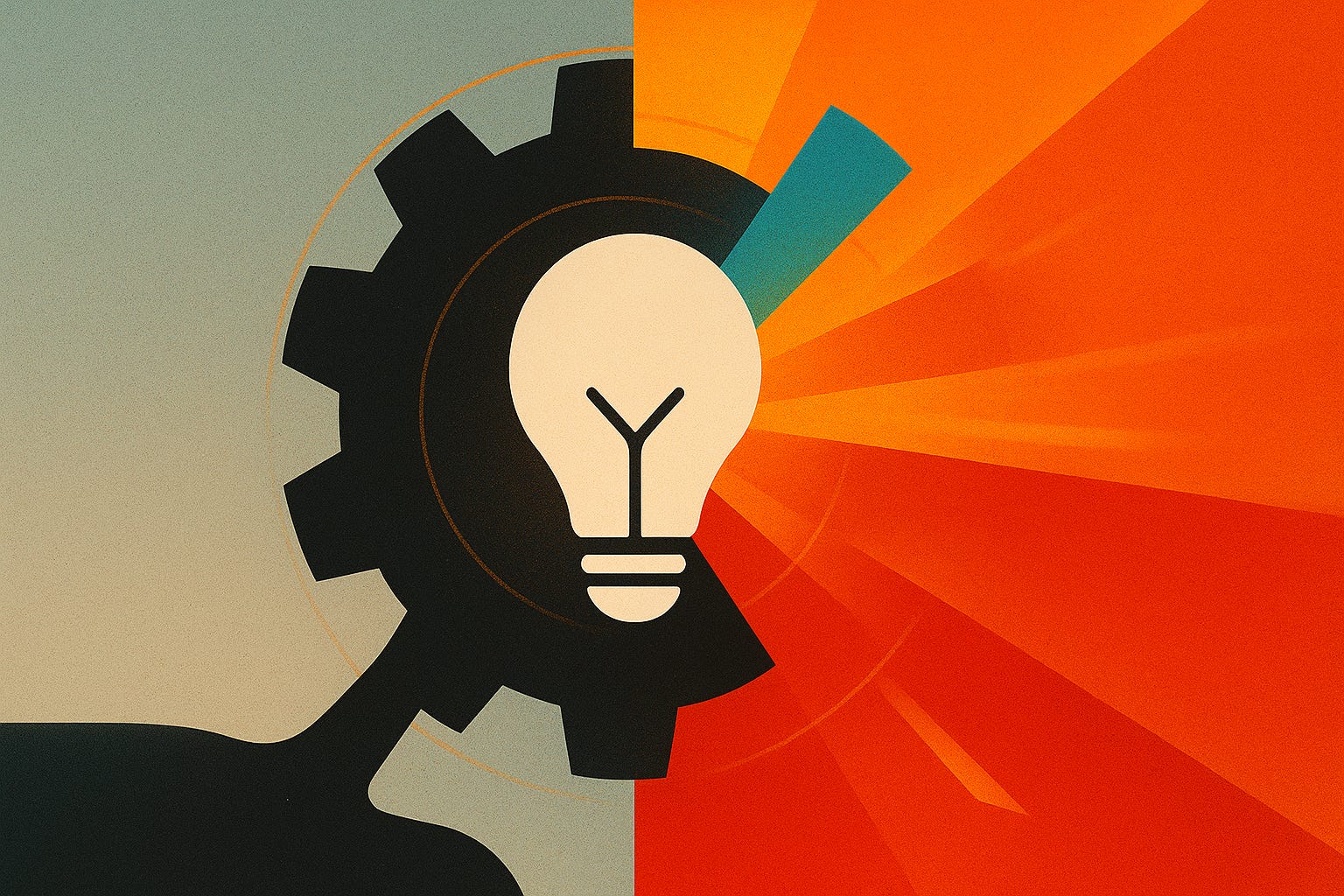The Pattern Breakers book is now available wherever you buy your books.
Key takeaways:
A “superbuilder” can be the difference between ordinary success and greatness.
If a freelancer or someone on Fiverr or Upwork can build it for you, they can build it for someone else. Superbuilders are a core part of the “talent alpha” that helps a startup break away from the pack.
Superbuilders bring more than just technical ability. They attract superior technical talent and partners and embody leadership through action. This flywheel is critical to startup success.
I talked to Kyle Vogt of Justin.tv/Cruise fame last week on my Pattern Breakers podcast. His story reminded me of one of the critical characteristics I’ve seen in the breakthrough startups: The presence of a “Superbuilder” on the founding team.
It’s tempting to think of technical people in terms of their “skills” – Are they full-stack or UX? Do they know a certain language or have a certain type of experience in their background? But what I am describing here is more profound: A superbuilder is someone endowed with not just technical prowess but also insatiable curiosity, unwavering tenacity, and a staunch belief in their capability to surmount any technical hurdle. Such individuals, I’ve observed, are often a linchpin in start-ups that achieve outsized success.
Kyle’s Role at Twitch
Justin Kan, one of Kyle's Justin.tv co-founders, speaks of him with great reverence. He likes to recount how Kyle would "hero code" the company out of crises during Justin.tv's early days. There were times when Kyle would lock himself in a room for days, battling problems head-on, emerging later with working solutions to technical challenges that had seemed impossible.
Kyle Vogt, co-founder Justin.tv, Cruise Automation, and The Bot Company
Michael Seibel, another Justin.tv co-founder, shared a powerful example from those early days. When Justin.tv was just a year old, it was swarming with users streaming copyrighted content, including major sporting events. NBC had invested heavily in the streaming rights for the 2008 Beijing Olympics. It was fiercely protective of its interests. Back then, Justin.tv was a fledgling startup, stumbling through the fog in search of product-market fit. Michael Seibel got a call from a high-powered lawyer at NBC, a moment seared into his memory.
It came on a Friday afternoon. She gave him the heads up that by Monday, a court in San Francisco was about to order Justin.tv to shut down the site for the entire month. This would eliminate any chance of Olympic broadcasts being illegally streamed on Justin.tv. But it wasn't just about the Olympics. The month-long shutdown was proposed for the entire site. This could have destroyed the platform. Justin.tv might have been finished.
Staring down this existential threat, Seibel desperately looked for an angle, for any solution that would convince NBC to moderate its stance. The lawyer mentioned YouTube’s special software that NBC was using to monitor and take down copyright-infringing content. Seibel proposed, “What if we built something similar for you over the weekend?”
The attorney didn’t pay much heed to this idea because it seemed impossible. But Kyle and the team worked relentlessly during the weekend. By Sunday morning, they presented their solution to NBC. After testing it, NBC decided not to pursue shutting down Justin.tv. They opted to use the tool instead.
This example highlights the critical role a superbuilder can play in a crisis. And as Michael Seibel points out, there's a deeper essence to a superbuilder. One key trait often overlooked is faith. Superbuilders believe in their ability to create what they've never built before. Kyle Vogt embodied this. He believed he could build anything, and it turned out he pretty much could.
A superbuilder can be the difference between typical success and greatness
Today, we live in a world where you can get things built anywhere. You can specify a product and go to an online service like Fiverr or Upwork to find a freelance coder, or hire contractors from places all around the world with lower costs.
This is all great, in some ways. But the fact that you have access to Fiverr and Upwork means anyone you're competing with has access to the same capabilities too. You don't gain any fundamental competitive advantage.
For a startup, winning is not just about the cost of building things. It’s about the ability to build whatever is needed for a breakthrough, and to do it as fast as possible. It’s about building what others can’t build. It's about navigating the unforeseen, constant barriers. A startup thrives on uncertainty, where adapting to the unexpected is priceless. When flaws surface, the unbound "superbuilder" swiftly guides toward the right path. Their readiness for unpredictable hurdles grants startups an unfair advantage, ensuring success in the face of uncertainty.
A superbuilder attracts greatness like a magnet
Superbuilders play an important role in attracting other co-conspirators as well as customers and partners because they excite and inspire people who care about technical excellence. And these people don’t lead by talking. They lead by building great things, which draws in others who are serious about building great things for real, without the BS.
In the early days of a start-up, the superbuilder can be as important to greatness as the start-up leader, and they’re often not the same person. Superbuilders bring to the task a set of complementary creative capabilities that can’t be replaced or duplicated.
A superbuilder doesn’t just bring expertise; he or she accelerates a team’s pace, sometimes making the difference between the company’s success and failure.
Fulfilling a lifelong passion
And this brings us to a more recent chapter in Kyle’s story: his legendary work at Cruise Automation, a company dedicated to autonomous vehicles and robotaxis. His passion for this challenge began in his teenage years and intensified during his days at MIT.
When I saw Kyle in the early stages of Cruise, I was already grateful for his role in Twitch’s success. Everyone on the Floodgate team was. But most were skeptical about Cruise’s prospects. They didn't have a working product yet. Keep in mind this was a decade ago, and it was uncertain if any team could ever make a product like this work. They had already faced a setback when their initial attempt to attach high-tech smart roof racks to existing cars failed, forcing a hard pivot. Trusting my instincts, I invested anyway. I did it because I had faith in Kyle as a superbuilder. If anyone could build a team that could overcome this incredibly hard technical challenge, he could. Less than a year later, GM acquired Cruise for over $1 billion. More important than the financial outcome was Kyle’s impact on the future. He realized his childhood dream to make self-driving cars a reality. Cruise Automation's contributions to autonomous vehicle technology and urban transportation have had a lasting impact on the industry and the future of mobility.
So what does this mean for you?
Whenever you can, get a superbuilder in your domain as a co-founder on your startup team.
What traits should you seek in such a person? Kyle Vogt demonstrated all of them:
Technical Expertise: Kyle brought exceptional technical skills to the team. He was instrumental in building the core infrastructure that enabled live streaming, a challenging and innovative feat at the time.
Problem-Solving Ability: His knack for solving complex engineering problems helped Justin.tv overcome numerous technical hurdles, ensuring the platform was robust and scalable.
Innovation and Creativity: Kyle's innovative mindset contributed to the development of new features and improvements, keeping Justin.tv at the forefront of the live streaming space.
Dedication and Work Ethic: His dedication and tireless work ethic inspired the team and drove the project forward, often going above and beyond to ensure the platform's success.
Leadership and Collaboration: Kyle's ability to lead and collaborate with other team members fostered a productive working environment that emphasized rapid execution and output, in spite of Justin.tv’s chaotic circumstances.
Never fight fair
In closing…
On the Pattern Breakers podcast and in our Pattern Breakers book I’ve often emphasized that business is never a fair fight. The only question is who gets to have the unfair advantage? The status-quo and the incumbents? Or the startup with its willingness to radically change the rules?
Having a superbuilder on your team is crucial to tilting the playing field in your favor. Without such a person, the odds start to favor the incumbents with their superior resources, and you're more likely to face other startups who can easily mimic your work.
The good news is you don't have to fight fair. To tilt the odds in your favor, do your best to make sure you have a superbuilder on your team, ideally from day one.





